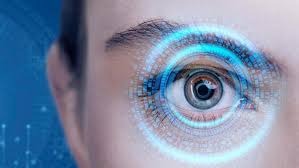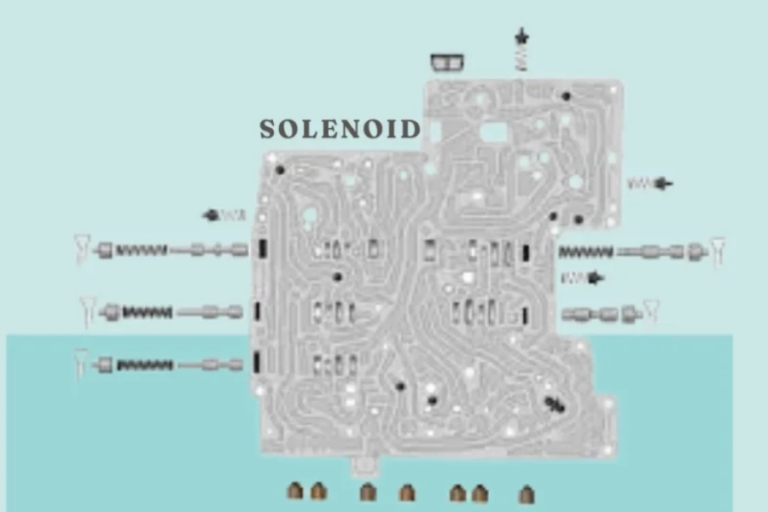Clear Vision for Life: Secrets to Maintaining Eye Health in Your Golden Years
Imagine a world where every glance reveals the vibrant colors and intricate details around you. This is the gift of good vision, something that becomes even more precious as we age. Maintaining eye health in your golden years is crucial for preserving your independence and quality of life.
In this blog post, we’ll explore why eye health matters, common age-related vision problems, and practical steps you can take to protect your eyesight.
Understanding Age-Related Vision Problems
Common Conditions Affecting Seniors
Aging brings several challenges, and vision problems are among the most prevalent. Cataracts, glaucoma, and macular degeneration are common conditions affecting seniors. Cataracts cause clouding of the eye lens, leading to blurred vision. Glaucoma, on the other hand, involves damage to the optic nerve, often due to increased eye pressure, which can result in vision loss. Macular degeneration affects the central part of the retina, hindering your ability to see fine details and colors.
Early Detection and Signs to Watch For
Early detection is crucial in managing these conditions effectively. Regular eye exams can catch problems before they become severe. Look out for symptoms like blurred vision, difficulty seeing at night, halos around lights, and frequent changes in prescription glasses. If you experience any of these signs, promptly schedule an appointment with your eye doctor.
The Importance of Being Proactive
Being proactive about your eye health can make a significant difference. By understanding these conditions and keeping an eye out for early warning signs, you can seek timely treatment and preserve your vision. Knowledge is power, and when it comes to eye health, staying informed is your best defense.
Lifestyle Practices for Optimal Eye Health
Healthy Diet and Its Impact on Vision
What you eat plays a crucial role in maintaining good eyesight. Nutrient-rich foods like leafy greens, carrots, and fish packed with omega-3 fatty acids support eye health. Vitamins C and E, zinc, and antioxidants found in these foods help in preventing or delaying age-related vision problems like macular degeneration and cataracts. Including a variety of these foods in your diet can provide essential nutrients to keep your eyes healthy.
The Importance of Regular Physical Activity
Regular physical activity is not just good for your overall health; it also benefits your eyes. Exercise improves blood circulation, which helps maintain the health of retinal cells. Activities like walking, swimming, and yoga can promote better eye health by reducing the risk of high blood pressure, diabetes, and cholesterol levels—factors that can damage blood vessels in the eyes.
Tips for Managing Digital Eye Strain
In today’s digital age, many of us spend hours in front of screens, leading to digital eye strain. Follow the 20-20-20 rule to alleviate this stress—every 20 minutes, take a 20-second break and look at something 20 feet away. Adjusting screen brightness, using anti-glare screens, and maintaining an appropriate distance from your monitor can also help reduce eye strain. Taking these small steps can make a big difference in protecting your vision.
Protecting Your Eyes from the Environment
How to Shield Your Eyes from UV Rays
Exposure to ultraviolet (UV) rays from the sun can harm your eyes. Wearing sunglasses that block 100% of UVA and UVB rays is essential. Wide-brimmed hats can also provide extra protection. UV exposure can lead to cataracts and other eye problems, so make it a habit to protect your eyes whenever you step outside.
Safety Measures to Prevent Eye Injuries
Eye injuries can happen in everyday situations, from cooking to gardening. Wearing protective eyewear during activities that pose a risk to your eyes is crucial. Safety glasses, goggles, and face shields can prevent injuries from flying debris, chemicals, and other hazards. Taking preventive measures can protect your eyes from accidents that could lead to long-term damage.
Being Mindful of Environmental Irritants
Environmental irritants like pollen, dust, and smoke can cause eye irritation and allergies. Use air purifiers and keep windows closed during high pollen seasons. Staying hydrated by drinking plenty of water can also help maintain the moisture balance in your eyes. Simple adjustments in your environment can significantly reduce eye discomfort and protect your vision.
The Role of Routine Eye Exams
Why Regular Check-Ups Are Crucial for Everyone
Routine eye exams are vital for detecting and managing eye problems early. Adults over 60 should have an eye exam at least once a year. These check-ups can identify issues like glaucoma, cataracts, and macular degeneration before they progress. Early intervention can prevent severe vision loss and maintain your eye health effectively.
Tips for Finding the Right Optometrist
Choosing the right optometrist ensures you receive comprehensive eye care. Look for experienced professionals with good reviews and recommendations. Ensure they offer the latest diagnostic tools and treatments. Don’t hesitate to ask questions about their experience with age-related eye conditions. Finding a trusted optometrist is a crucial step in maintaining your eye health.
Making the Most of Your Eye Appointments
Preparing for your eye exam can enhance its effectiveness. List any vision issues or questions you have beforehand. Bring your current glasses or contact lenses and a list of medications you’re taking. Discuss any changes in your vision and family history of eye conditions. Being proactive and prepared can make your eye appointments more productive and beneficial.
Technological Advances in Eye Care
Overview of Innovative Treatments
Advancements in technology have revolutionized eye care. Laser eye surgery, such as eye lasik surgery, offers solutions for vision correction. Procedures like cataract surgery have become safer and more effective. These treatments can significantly improve your vision and quality of life. Staying informed about the latest advancements can help you make better decisions about your eye care.
Devices for Age-Related Vision Problems
Innovative devices are available to help manage age-related vision problems. Magnifying glasses, specialized reading glasses, and electronic reading aids can enhance your ability to see clearly. Assistive technologies like screen readers and voice-activated devices can also improve accessibility for those with vision impairments. These tools can help you maintain independence and enjoy daily activities.
The Future of Eye Care Technology
The future of eye care holds exciting possibilities. Research is ongoing in areas like gene therapy, artificial intelligence, and advanced diagnostics. These innovations have the potential to provide new treatments and improve outcomes for various eye conditions. Staying updated on these developments can give you hope and options for better eye health.
Conclusion
Maintaining eye health in your golden years is crucial for preserving your quality of life. By understanding common vision problems, adopting healthy lifestyle practices, protecting your eyes from environmental hazards, and staying proactive with routine eye exams, you can enjoy clear vision well into your senior years. Technological advances offer new possibilities for treatment and management, ensuring you have the best options available.
Prioritize your eye health today by scheduling an eye exam and implementing the tips shared in this post. Share this information with friends and family who might benefit, and let’s work together to protect our vision.
Keep an eye for more news & updates Glamour Headline!





